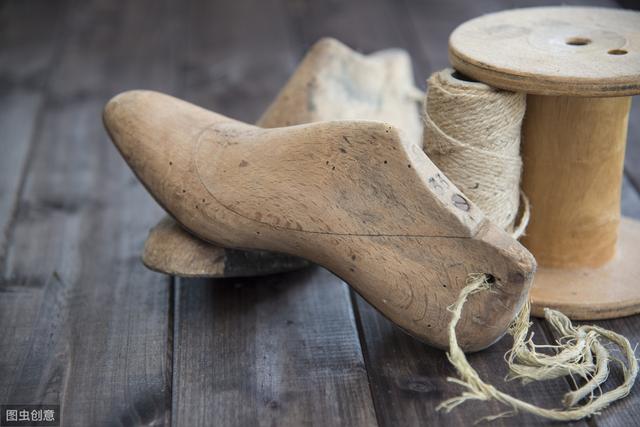正文
A cobbler(修鞋匠) passed his time in singing from morning till night; it was wonderful to see, wonderful to hear him; he was more contented in shoes, than was any of the Seven Sages(古希腊七贤人).
一个修鞋匠没事儿的时候喜欢唱歌,从早到晚唱个不停。人们看见他就高兴,听到他唱歌就开心。他喜欢跟鞋子打交道,比希腊七贤还要心满意足。
cobbler(修鞋匠)
His neighbor, on the contrary, who was rolling in wealth, sang but little and slept less. He was a banker; when by chance he fell into a doze(瞌睡) at day-break, the cobbler awoke him with his song.
他的邻居恰恰相反,整天在钱堆里打滚,几乎不唱歌,连觉也睡得很少。他是个银行家,偶尔在天快亮的时候打个盹儿,还得被修鞋匠的歌声吵醒。
The banker complained sadly that Providence(上帝) had not made sleep a saleable commodity(商品), like edibles or drinkables. Having at length (后来)sent for(派人去请) the songster(歌唱家), he said to him, “How much a year do you earn, Master Gregory?”
银行家很伤脑筋,抱怨着上帝怎么就没有把睡眠变成一种可以买卖的物品,就像吃的和喝的东西一样。 终于,银行家派人去把“歌唱家”请来,对他说:“你一年挣多少钱啊,格雷戈里师傅?”
“How much a year, sir?” said the merry cobbler laughing, “I never reckon(计算) in that way, living as I do from one day to another; somehow I manage to reach the end of the year; each day brings its meal.”
“先生,你是问我一年赚多少钱吗?”快乐的修鞋匠笑了起来,“我没算过,我就这样过了一天又一天;不知怎么地,我就能挨到年根儿,天无绝人之路嘛。”
“Well then! How much a day do you earn, my friend?”
“朋友,那我问你,你一天能挣多少钱?”
“Sometimes more, sometimes less; but the worst of it is, — and, without that our earnings would be very tolerable(可以的), a number of days occur in the year on which we are forbidden to work; and the curate(助理牧师), moreover, is constantly adding some new saint(圣徒) to the list.”
“有时候多点儿,有时候少点儿,最糟糕的也不过是每年总有几天不让摆摊……就算那样,我们的收入也够花。再说了,咱们的牧师时刻都在扩充圣徒的队伍呢,咱们随时可以加入。”
The banker, laughing at his simplicity(天真), said, “In the future I shall place you above want. Take these hundred crowns(克朗), preserve them carefully, and make use of them in time of need.”
银行家并不认同,觉得他的想法太过简单,就说:“我能让你将来脱离苦日子。给你这几百克朗,好好保管,需要的时候再用。”
The cobbler fancied he held all the wealth which the earth had produced in the past century for the use of mankind. Returning home, he buried his money and his happiness at the same time, No more singing; he lost his voice, the moment he acquired that which is the source of so much grief.
修鞋匠猜想自己拥有了足够上个世纪供全世界人花销的财富,回到家他把钱埋了起来,同时也埋葬了幸福。他再也不唱歌了,嗓子坏了,拿到钱的那一刻就注定了要承受这么多的痛苦。
Sleep quitted his dwelling; and cares, suspicions, and false alarms took its place. All day, his eye wandered in the direction of his treasure; and at night, if some stray(离群的) cat made a noise, the cat was robbing him.
从此他再也没睡过觉,变得忧心忡忡、疑神疑鬼、一惊一乍。白天,他就用眼睛盯着藏钱的地方,到了晚上,流浪猫闹点儿动静,他都觉得猫是来抢钱的。
At length the poor man ran to the house of his rich neighbor. “Give my sleep and my voice back.” said he, “and take your hundred crowns.”
最后,穷人跑去有钱的邻居家里说:“把你的几百克朗拿回去,你还我的睡眠和歌喉!”
希腊七贤(Seven Sages of Greece或称Seven Wise Men)是指古希腊人所说的七个最有智慧的人,相传这七人各有一句名言传世。雅典的梭伦(Solon)说要“避免极端”(Nothing in excess.);斯巴达的奇伦(Chilon)的格言是“认识你自己”(Know thyself.);米利都的泰勒斯(Thales)认为“过分执着稳健只会带来灾难”(To bring surety brings ruin.);普林纳(小亚细亚)的毕阿斯(Bias)觉得“人多手脚乱”(Too many workers spoil the work.);林都斯(罗得岛)的克莱俄布卢(Cleobulus)告诫世人“凡事取中庸之道”(Moderation is the chief good.);密提利那(列斯保岛)的庇塔库斯(Pittacus)提醒人们要“抓紧时机”(Know thine opportunity.);科林斯的佩里安德(Periander)的格言是“行事前要三思”(Forethought in all things.)。
我是阁香书院,如果你喜欢看我的英语文章,想看更多的英语文章的话,欢迎关注我,让我们一起学习英语,一起进步吧!




